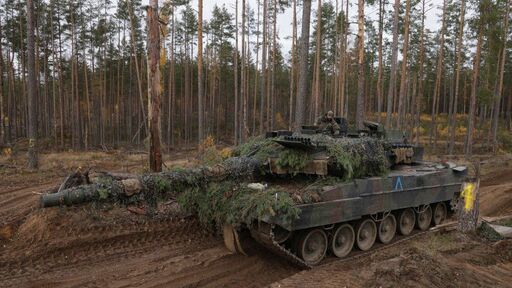On escalation and de-escalation – Douthat in NYT:
‘When the Ukrainian military made rapid advances in its autumn campaign, the fears of Russian nuclear retaliation were connected to a longstanding American interpretation of Russian strategic theory: “escalate to de-escalate,” the idea of using a limited nuclear strike to raise the stakes of conflict so high that your enemies see no choice but to bargain, regardless of their conventional advantages.
In the months since, the return to a war of attrition and various Russian disavowals have eased nuclear anxieties somewhat. But an “escalate to de-escalate” theory remains relevant to the situation in Ukraine because it seems to inform both the American and the Russian strategies — conventional, not nuclear — for the spring campaign.
Note that I said American strategy and not Ukrainian. Ukraine’s desired strategy remains what it’s been, understandably enough, for the entire war: escalate to win. Kyiv wants as many weapons as the West can send, it wants to reclaim every inch of territory, and it doesn’t want to entertain terms that would concede anything to the invading Russians.’
(…)
‘Yes, the formal White House position is that Ukraine will have our support all the way to victory. But the cautious approach that President Biden and his team have taken to armaments that might radically change the balance of the war, the nudges encouraging Kyiv to show openness to negotiation, the concern about investing too heavily at the expense of our Asian commitments — all of this indicates that the White House’s proximate goal is a favorable armistice, not complete Russian defeat.’
(…)
‘One hope was that the Ukrainian counteroffensive last fall and Europe’s so-far successful endurance of the winter months would be decisive in pushing Moscow toward accepting this reality, and even toward elaborating on its own proposals (no doubt unrealistic ones at first) for a negotiated settlement.
But instead the Russians seem to be not just digging in but also girding for their own renewed offensive. Which explains, in turn, why the Biden White House and our European allies are cautiously — and with a certain amount of Germanic hesitancy — turning up the dial of escalation, enabling an increase in tanks and heavy armor flowing into Ukraine.
So far this is not a policy designed to completely overwhelm a Russian mobilization or drive the Russians out of Ukraine. It’s a policy seemingly intended to blunt any new offensive, to potentially make the Russians lose more ground, and to show Moscow that it can’t win a grinding war any more easily than it initially hoped to win a short one. It’s an escalation that assumes the Russians need a little more convincing, and then they’ll be open to the de-escalation that we haven’t been able to achieve.’
(…)
‘Instead, escalation is embraced as a coldly logical decision, as the only reasonable course.
And out of such rationality, you get closer to the irrationality of fighting for years in a war that neither side can fully hope to win.’
Read the article here.
After let’s say approximately 220,000 soldiers killed (in November the estimate was 200,000 soldiers killed) the irrationality is there and cannot be overlooked.
The war will grind on and might in an unfavorable armistice for all sides.
And it’s good to remember, the US is not looking for regime change in Moscow. Quite the opposite, Biden’s advisors fear regime change in Moscow, and I would say rightly so.
Escalate to de-escalate is the best way to describe most human behavior.
